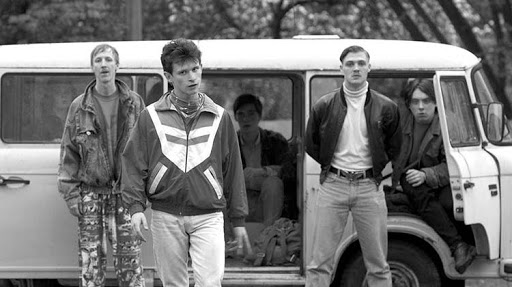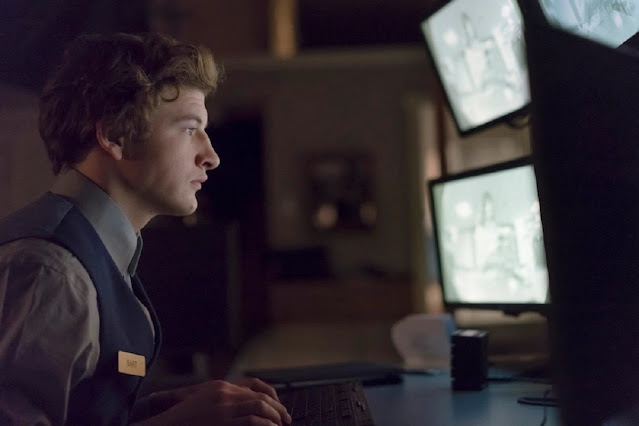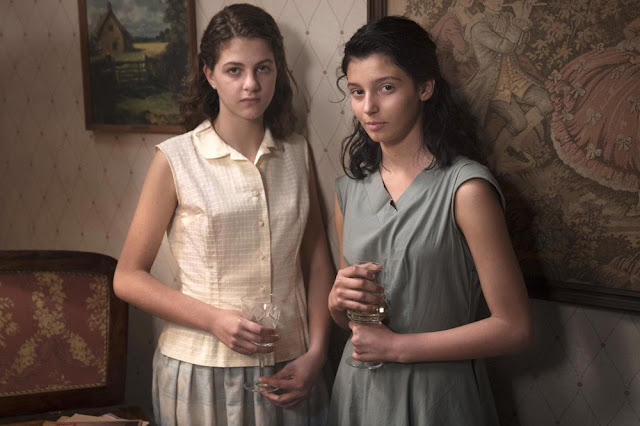Somos jóvenes. Somos fuertes / Wir sind jung. Wir sind stark/ We are young. We are strong.
Somos jóvenes, somos fuertes aborda los violentos sucesos xenófobos contra un Centro de recepción de solicitantes de asilo (ZASt) en Lichtenhagen, un distrito de la ciudad de Rostock, sobre el Mar Báltico, ciudad que perteneciera a la ex Alemania Oriental. El centro se hallaba sobrepasado en su capacidad y numerosos refugiados (muchos de ellos rumanos/gitanos) acampaban en sus inmediaciones.
La película encara la narración desde tres puntos de vista: el de un grupo de jóvenes desocupados y ociosos, que adscriben a consignas neonazis; el de un desencantado funcionario socialdemócrata que no sabe muy bien qué hacer frente al conflicto (Devis Striesow, el médico alemán de la serie Dignidad) y el de un grupo de residentes vietnamitas que habitaban un monoblock ubicado enfrente del Centro (algunos ya con empleos y que se sentían ciertamente amenazados) y centra casi toda la acción a lo largo de uno de esos días aciagos de agosto de 1992. Y todo en un opresivo y desencantado blanco y negro plenamente justificado y con varios detalles formales muy logrados.
Quizás lo más inquietante de esta película de Burhan Qurbani sea la confusión que se genera por momentos acerca de la violencia que se está gestando y sus actores y la madeja de motivaciones que mueven a un grupo de jóvenes a deslizarse por la pendiente de la xenofobia y el neonazismo (depresión, pérdidas, desempleo, aburrimeinto, prejuicio y hasta romance), la existencia de un líder siempre más convencido y violento que lo galvaniza y la forma casi casual de pasar de esa nebulosa algo difusa a la acción directa. Deriva "espontánea" que también incluyó a pobladores de Rostock menos radicalizados pero que se plegaron a los desmanes.
El huevo de la serpiente y la famosa banalidad del mal de Hannah Arendt.
....................................................................................................................................................................
After German reunification, many hopeful Germans in the
former East Germany fell into unemployment and poverty, the communist welfare
state disappeared. And it was perhaps ironic that many neo-Nazi groups were
nurtured by young descendants of communists or socialists from the East.
We are young, we are strong addresses the violent xenophobic
events against an Asylum Seekers Reception Center (ZASt) in Lichtenhagen, a
district of the city of Rostock, on the Baltic Sea, a city that belonged to the
former East Germany. The center was over-capacity and many refugees (many of
them Romanians / Gypsies) were camping nearby.
The film approaches the narrative from three points of view:
that of a group of unemployed and idle youth, who adhere to neo-Nazi slogans;
that of a disenchanted Social Democratic official who does not know very well
what to do in the face of the conflict and that of a group of Vietnamese
residents who lived in a monoblock located in front of the Center, some already
with jobs and who certainly felt threatened. The film centers almost all the
action throughout one of those fateful days in August 1992. And all in an
oppressive and disenchanted black and white fully justified and with several
very successful formal details.
Perhaps the most disturbing thing about this film by Burhan
Qurbani is the confusion that is generated at times about the violence that is
brewing and its actors and the skein of motivations that move a group of young
people to slide down the slope of xenophobia and neo-Nazism (depression,
losses, unemployment, boredom, prejudice and even romance), the existence of an
ever more convinced and violent leader who galvanizes him and the almost casual
way of going from that somewhat diffuse nebula to direct action.
"Spontaneous" drift that also included less radicalized Rostock villagers
who bowed to the excesses.
The Serpent's Egg and Hannah Arendt's Famous Banality of
Evil.




Comentarios
Publicar un comentario
Mensajes sujetos a moderación